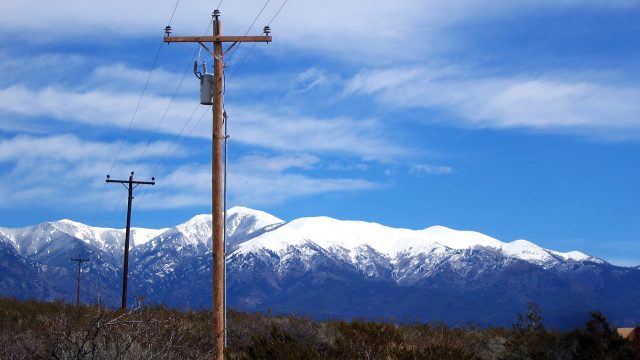Green Mountain State electric costs could climb

By Jon Street| Vermont Watchdog
POWER PUNCH: Federal data challenge energy cost claims by environmental groups
BURLINGTON, Vt. — Environmental groups say renewable energy production lowers electricity costs, but federal government data suggests it may do just the opposite.
Vermont’s electric costs already are among the highest in the nation, and rates could climb higher once the Vermont Yankee nuclear plant closes for good.
Environmental activist groups last year upped the pressure on the Louisiana-based Entergy Corp., which owns the nuclear energy plant, leading the company to announce in August it would close Vermont Yankee completely by the end of 2014.
The Conservation Law Foundation, which describes itself as an organization that aims to preserve New England’s environment while sustaining a vibrant economy and healthy communities, was among one of the groups that pushed for Vermont Yankee’s closure. Sandra Levine, senior attorney for the foundation, applauded the news.
“Ultimately, old technology, whether nuclear or coal-fired, cannot compete with newer, more efficient resources, renewable energy and energy efficiency. New England is undergoing a massive technology transition that is hastening the demise of old power plants throughout the region. Vermont is leading the way into an era of smarter, more efficient ways to generate electricity and is well-positioned on its way to a nuclear-free, fossil-fuel free energy future,” Levine said.
In a statement to Vermont Watchdog on Thursday, Levine said, “Closing nuclear and coal plants will reduce costs and reduce pollution throughout New England.”
But according to 2012 data from the U.S. Energy Information Administration, the most recent year for which data is available, states that produced the most coal also had much cheaper electricity costs. Wyoming, West Virginia, Kentucky, Pennsylvania and Illinois were the five largest producers of coal that year. Average retail electricity prices in those states were among the lowest in the nation.
The U.S. Department of Energy reports renewable energy production in each of those five states is less than 20 percent. In Vermont, renewable energy accounts for more than 45 percent of the electricity supply.Vermont is one of only two states in the nation without coal-powered electricity production, and its electricity rates are nearly double those of coal-producing states.
Asa Hopkins, director of the Vermont Public Service Board’s Planning and Energy Resources Division, disputed the Energy Information Administration’s report.
“The EIA tracks where the generation happens and defines that by state, but it does not track where the utilities have contracts with for their power. So the EAI doesn’t track the contractual side of things, which is what matters from an energy planning perspective. So Vermont utilities haven’t gotten any power, contractually, from Vermont Yankee since March 2012,” he said.
Hopkins acknowledged almost half of Vermont’s energy supply today comes from renewable sources.
“The portfolio as it stands today is about 45 percent renewable, and that’s basically hydro-power,” he added.
While Hopkins singled out Hydro Quebec as one of Vermont’s main energy sources, he said Vermont has had utility-owned generation. That’s in addition to “various” other power purchase agreements with “various” other sources, adding, “there’s no one large source.”
According to Vermont’s 2011 Comprehensive Energy Plan, the most recent available, Vermont’s energy needs were met with biomass, hydroelectric, solar, photo-voltaic, wind, natural gas, and nuclear sources that year.
Gov. Peter Shumlin has been a strong advocate for moving Vermont toward a complete renewable energy supply. In fact, his administration is working to ensure that 90 percent of Vermont’s energy will come from renewable sources by 2050.
Shumlin welcomed the announcement of Vermont Yankee’s closure in August, saying, “This is the right decision for Vermont as we move to a greener energy future.”
Calls to the Vermont Public Interest Research and Education Fund were not returned Thursday. VPIRG, though, embraced the Aug. 27 news of Vermont Yankee’s closure by thanking “everyone who has supported the campaign to retire VY and transition Vermont toward a clean energy future.”
Contact Jon Street at jstreet@watchdog.org and find him on Twitter @JonStreet.







